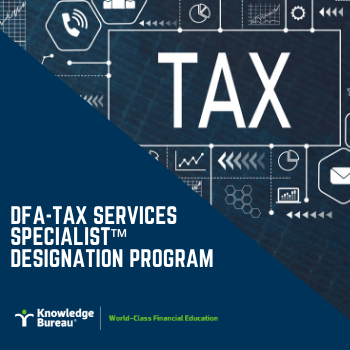Catching Up: CRA’s Voluntary Disclosure Program (VDP) May Provide Relief

Tax season 2020 will officially begin on February 24, when the CRA opens the gates for electronic filing. Unfortunately, some taxpayers will find themselves with an unwanted tax bill this tax season, whether through an unintentional miscalculation on their original return or because they are misrepresenting themselves on their claims. In either case, there can be expensive consequences. The Voluntary Disclosure Program can help.
A taxpayer may voluntarily comply with the Income Tax Act to correct errors and omissions on previously-filed returns or to file omitted returns. CRA requires that before making such an application using Form RC199, the taxpayer should also be sure that relief from penalty provisions is possible. If relief from penalties is possible, some interest relief may be possible, too.
Taxpayers can correct inaccurate or incomplete information, disclose information not previously reported, correct the claiming of ineligible expenses, failure to remit source deductions, failure to file an information return, or underreport income. However, under the Voluntary Disclosure Program, applications fall under two categories:
GENERAL TRACK – Penalty relief and partial interest relief is possible if:
The disclosure is voluntary, complete, and involves the application or potential application of a penalty and
- includes information that is at least one year past due and
- payment of the estimated tax owing required.
In these cases, there will be no penalties and no criminal investigation will occur. However, 50% of interest charges must be paid – for years prior to the 3 most recent years. Full interest  charges will be assessed for the three most recent years.
charges will be assessed for the three most recent years.
LIMITED TRACK – Reduced relief in cases that include an element of intentional conduct by the taxpayer or a closely-related person.
Severe cases of non-compliance will not qualify for relief at all; however, under this program, penalty relief may be possible for gross negligence only on a case-by-case basis. Not possible:
- Applications that relate to income tax returns with no taxes owing or with refunds expected; these would be handled using normal processing procedures.
- Post-assessment requests for penalty and interest relief; these requests will be considered to be retroactive tax planning.
- Elections
- Applications where a person is in receivership or has become bankrupt.
FAIRNESS REQUESTS. If the Voluntary Disclosure Program is not applicable to the taxpayer’s situation, a fairness request may be made using form 4288. This allows CRA discretion to grant penalty and interest relief in three cases as described in IC 07-1R1:
Extraordinary taxpayer circumstances including natural or man-made disasters such as flood or fire, civil disturbances or disruptions in services, such as a postal strike, a serious illness or accident or serious emotional or mental distress, such as death in the immediate family
Actions of the CRA including processing delays that result in the taxpayer not being informed within a reasonable time that an amount was owing, errors in processing; or errors in material available to the public, which led taxpayers to file returns or make payments based on incorrect information, incorrect information provided to a taxpayer i.e. where the CRA wrongly advises a taxpayer that no instalment payments will be required for the current year. Also:
- Delays in providing information so that the taxpayer could not make instalment or arrears payments because the necessary information was not available or
- Undue delays in resolving an objection or an appeal, or in completing an audit
Inability to pay or financial hardship – generally not allowed. When collection had been suspended due to an inability to pay and substantial interest has accumulated or will accumulate or when a taxpayer's demonstrated ability to pay requires an extended payment arrangement, CRA may waive all or part of the interest for the period from when payments start until the amounts owing are paid as long as the agreed payments are made on time and compliance with the act is maintained or when payment of the accumulated interest would cause a prolonged inability to provide basic necessities (financial hardship) such as food, medical help, transportation, or shelter.
Help from a professional is a good idea, to ensure that a taxpayer’s appeal options are always kept open. However, it all begins with filing an accurate tax return every year on time. Welcome to tax season 2020!
Additional educational resource: Achieve your DFA- Tax Services Specialist™ designation and become a personal taxation specialist. In this program, you’ll specialize in personal taxation and learn how to prepare a broad range of returns ranging from the simple to the complex, which in turn will help you aid your clients remain compliant in a voluntary tax system. Enrol or take a free trial today!

COPYRIGHT OWNED BY KNOWLEDGE BUREAU INC., 2020.
UNAUTHORIZED REPRODUCTION, IN WHOLE OR IN PART, IS PROHIBITED.